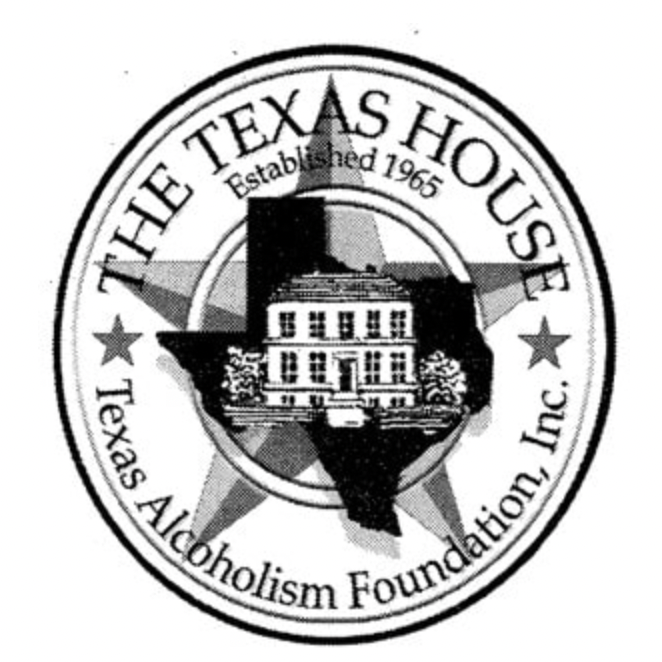Overview
Texas Alcoholism Foundation - Texas House Treatment Program is a substance abuse treatment center for people seeking treatment near Harris County. As part of their treatment modalities for recovery, Texas Alcoholism Foundation - Texas House Treatment Program provides cognitive behavioral therapy during treatment. Texas Alcoholism Foundation - Texas House Treatment Program is located in Houston, Texas, accepting no payment accepted for treatment.
Texas Alcoholism Foundation - Texas House Treatment Program at a Glance
Payment Options
- No payment accepted
- Federal, or any government funding for substance use treatment programs
- Payment assistance (check with facility for details)
Assessments
- Comprehensive substance use assessment
- Outreach to persons in the community
- Screening for mental disorders
- Screening for substance use
- Complete medical history/physical exam
Age Groups
- Seniors or older adults
- Young adults
- Adults
- Seniors
Ancillary Services
- Case management service
- Integrated primary care services
- Domestic violence services, including family or partner
- Early intervention for HIV
- Mental health services
Accreditations
State department of health:

Government agencies issue State Licenses, granting permission to rehabilitation organizations to conduct their business operations lawfully within specific geographic regions. Generally, the particular rehabilitation programs offered by a facility and its physical location dictate the necessary licenses needed for legal operation.
Treatment At Texas Alcoholism Foundation - Texas House Treatment Program

Conditions Treated
Alcoholism:
Alcohol addiction is a condition where someone feels a strong and uncontrollable urge to drink alcohol, often leading to negative effects on their health, relationships, and daily life. To assist individuals grappling with alcohol addiction, various strategies exist. Initially, supervised detoxification may be necessary to ensure a safe cessation of alcohol consumption. Following this, counseling and therapy play a crucial role in addressing the psychological facets of the addiction. Engaging in support groups can also offer a sense of camaraderie and comprehension.
Mental health treatment:
Mental health services are essential during treatment for drug and alcohol addiction, whether you receive treatment in an inpatient or outpatient setting. While receiving inpatient care, you can expect to have round-the-clock access to mental health therapists and medical staff. Additionally, you will likely receive a number of different therapies and mental health options like individual and group counseling, addiction and relapse prevention education, and coping skills training.
Substance use treatment:
Substance use rehabilitation is a comprehensive treatment approach designed to assist individuals struggling with addiction to drugs or alcohol. This form of rehabilitation addresses both the physical dependency, often starting with detoxification, and the psychological triggers, using various therapeutic methods. The objective is to empower individuals to achieve and maintain sobriety, while equipping them with the tools and coping strategies needed to reintegrate into society and lead a substance-free life.
Co-occurring Disorders:
Dual-diagnosis rehabilitation centers focus on treating individuals with simultaneous mental health and substance use disorders. The intertwined nature of addiction and mental health issues can intensify each other's symptoms, complicating recovery. These centers provide a holistic treatment strategy addressing both conditions together, often encompassing thorough evaluations, a blend of therapeutic methods, family counseling, and post-treatment care.

Levels Of Care
Hospital inpatient treatment:
Inpatient treatment comprises a thorough residential therapeutic program, during which patients reside on-site for a period generally lasting from 30 to 90 days. This immersive setting provides organized assistance, guaranteeing safety and a dedicated approach to recovery. The array of therapies available encompasses individual and group counseling, cognitive-behavioral therapy, holistic interventions, family therapy sessions, and experiential therapies. The primary goal is to address the physical, emotional, and psychological facets of addiction or mental health disorders, establishing a strong foundation for enduring healing.
Long-term residential:
Extended treatment plans frequently encompass residential initiatives where patients stay on-site throughout their therapy, tailored to their specific requirements. Professionals are available 24/7 at these facilities to provide continuous assistance. Treatment durations can vary, from 90-day rehabs to half-year stays, annual programs, or even up to two-year durations if necessary.
Aftercare:
Aftercare refers to the structured support and programs offered to individuals after completing an initial treatment phase for substance abuse or other disorders. Recognizing that recovery is an ongoing process, aftercare provides continued counseling, skill-building, group therapy, and resources to help individuals maintain sobriety, manage triggers, and reintegrate into daily life, reducing the risk of relapse and ensuring long-term success in recovery.
Halfway house:
A sober living home provides a supportive environment for individuals recovering from substance abuse. Distinct from inpatient rehab centers, it prioritizes a drug-free living without continuous medical oversight. Residents follow specific rules, including curfews and required group sessions, and may undergo random drug screenings. This setting merges autonomy with responsibility, aiding residents in their return to society, fostering coping mechanisms, and upholding sobriety alongside peers facing comparable recovery journeys.

Treatment Modalities
Cognitive behavioral therapy:
Cognitive Behavioral Therapy (CBT) is a widely practiced form of psychotherapy that seeks to address dysfunctional emotions, behaviors, and thoughts through a goal-oriented, systematic process. It encourages individuals to challenge distorted cognitions and change destructive patterns of behavior by promoting self-awareness and effective coping strategies. CBT is often used to treat a range of disorders including anxiety, depression, and stress, making it a versatile and practical therapeutic approach. Through enhancing an individual's capacity to manage life's challenges, CBT contributes to improved mental well-being and overall quality of life.
Substance use disorder counseling:
Substance use disorder counseling treatment modalities refer to various approaches and methods used in the counseling and treatment of individuals with substance use problems. This can include individual therapy, group therapy, cognitive behavioral therapy, motivational interviewing, family therapy, and 12-step programs. The goal is to help the individual overcome their substance use, develop healthy coping skills, and lead a fulfilling life in recovery.
Trauma-related counseling:
Trauma therapy delves into past traumatic events that might be influencing a client's current life experiences. Often, trauma serves as a significant precipitant or underlying cause of addiction. Such traumas can arise from childhood sexual abuse, domestic violence, growing up with a mentally ill parent, early parental loss, and experiences of sexual assault in teen or adult years, among other circumstances. Trauma therapy aims to aid the individual in processing and navigating beyond these traumas, guided by the expertise and empathy of skilled mental health specialists.
Group counseling:
Group Counseling is a therapeutic approach where individuals come together under the guidance of a trained counselor to share experiences, offer support, and gain insights. This collective format promotes mutual understanding and growth, allowing participants to learn from one another's perspectives and challenges.
Family counseling:
Family Counseling is a therapeutic approach that seeks to address and improve communication, understanding, and dynamics within a family unit. By addressing conflicts, emotional distress, and behavioral challenges, a trained therapist provides guidance and tools for family members to strengthen bonds, resolve issues, and foster a healthier family environment.
Marital/couples counseling:
Marital/couples counseling treatment modalities refer to various therapeutic approaches used to help couples resolve conflicts, improve communication, and strengthen their relationship. These modalities can include cognitive-behavioral therapy, emotionally focused therapy, solution-focused therapy, and integrative approaches. The goal of these treatments is to help couples identify and address underlying issues and develop healthy relationship dynamics.
12-step facilitation:
12-Step Facilitation is a structured approach to recovery used in many rehab facilities. It's rooted in the principles and practices of Alcoholics Anonymous (AA) and its 12-step program. The facilitation process promotes abstinence and supports individuals in becoming actively involved in 12-step self-help groups. The approach emphasizes personal responsibility, spiritual growth, and the importance of peer support to maintain sobriety and prevent relapse. By guiding individuals through each step, 12-step Facilitation aids participants in understanding the underlying causes of their addiction, seeking amends, and fostering a commitment to lifelong recovery.
Motivational interviewing:
Motivational Interviewing (MI) is a client-centered counseling approach designed to enhance an individual's intrinsic motivation to change by exploring and resolving ambivalence. Through empathetic engagement and evoking personal reasons for change, MI helps individuals recognize the negative consequences of their substance use and empowers them to take steps toward recovery.
Anger management:
Anger Management is a therapeutic approach aimed at helping individuals recognize the triggers and signs of their anger and teaching them effective ways to calm down and deal with the situations in a positive manner. Through a blend of counseling, cognitive-behavioral therapy, and practical skill development, individuals learn to reduce aggressive responses, improve communication, and enhance interpersonal relationships, contributing to a better quality of life.
Relapse prevention:
The Relapse Prevention Model is a cognitive-behavioral approach designed to teach individuals who are trying to maintain behavioral changes (like sobriety from drugs or alcohol) how to anticipate and cope with the potential for relapse. The model emphasizes the importance of understanding the processes and triggers that lead to relapse, developing strategies to prevent initial lapse, and minimizing the severity and duration if a lapse occurs. It's grounded in the belief that relapses can be viewed as learning opportunities, helping individuals strengthen their commitment and skills to avoid future setbacks.
Individual psychotherapy:
Individual therapy, often referred to as psychotherapy or counseling, is a one-on-one therapeutic interaction between a trained therapist and a client. It provides a confidential space for individuals to explore their feelings, beliefs, and behaviors, working through challenging memories, experiences, or emotions. The therapist facilitates self-awareness, promotes personal growth and insight, and offers coping strategies to manage specific issues like stress, anxiety, depression, and other life challenges. The ultimate goal is to improve the individual's mental well-being and enhance their overall quality of life.
Ancillary Services
Languages
- Spanish
Additional Services
- Pharmacotherapies administered during treatment
- Mentoring/peer support
- Breathalyzer or blood alcohol testing
Special Programs
- Clients with co-occurring mental and substance use disorders
- Veterans
- Criminal justice (other than DUI/DWI)/Forensic clients
- Clients with HIV or AIDS
- Clients who have experienced trauma
Contact Information
DISCLAIMER: The facility name, logo and brand are the property and registered trademarks of Texas Alcoholism Foundation - Texas House Treatment Program, and are being used for identification and informational purposes only. Use of these names, logos and brands shall not imply endorsement. BetterAddictionCare.com is not affiliated with or sponsored by Texas Alcoholism Foundation - Texas House Treatment Program.



